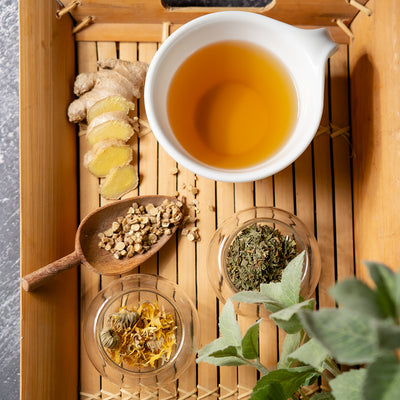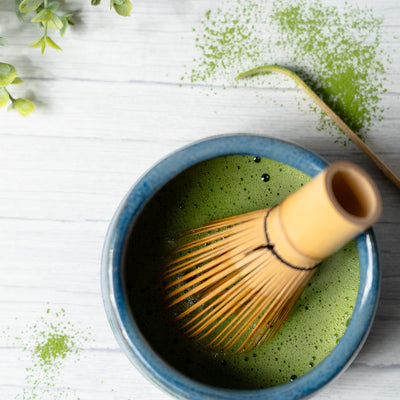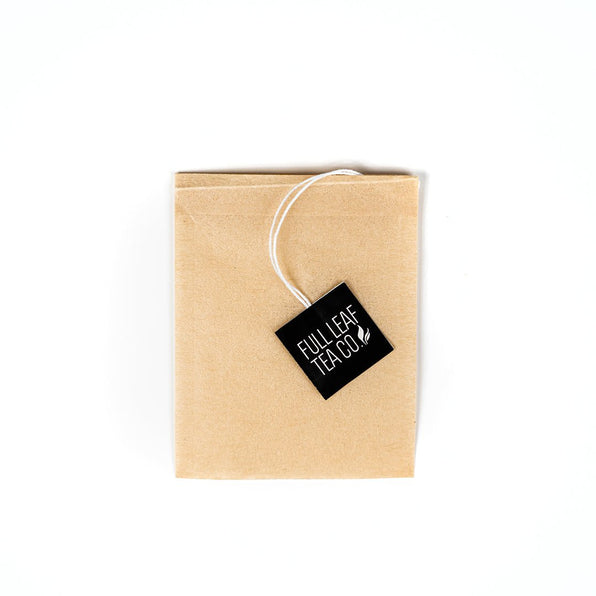Few beverages have influenced culture, trade, and tradition as profoundly as tea. Today, millions around the globe enjoy loose leaf tea not only for its flavor but also for its historical significance. The story of loose leaf tea spans thousands of years, beginning in ancient China and spreading across Asia, Europe, and beyond. Understanding its history provides deeper appreciation for every cup, as well as insight into the global impact of this beloved drink. Let's explore the fascinating journey of loose leaf tea from its ancient origins to its place in today's world.
Ancient Beginnings: The Birth of Tea in China
According to Chinese legend, tea was discovered in 2737 BCE by Emperor Shen Nong when tea leaves accidentally drifted into his pot of boiling water. While the legend may be myth, historical evidence suggests tea consumption in China dates back to the Shang Dynasty (1600–1046 BCE), where it was likely used for medicinal purposes!
During the Tang Dynasty (618–907 CE), tea culture flourished, transitioning from a medicinal herb into a popular daily beverage. It was during this era that tea preparation became more refined, with powdered tea whisked into hot water, a precursor to the Japanese tea ceremony.
Loose leaf tea as we know it gained prominence during the Song Dynasty (960–1279 CE), when tea leaves began to be steeped directly in water, setting the stage for modern brewing methods.

Journey to Japan and Beyond
Buddhist monks carried tea seeds and preparation methods from China to Japan in the 9th century. By the 12th century, Japanese priest Eisai had written Kissa Yōjōki (“Drinking Tea for Health”), emphasizing tea’s medicinal value. This contributed to the rise of chanoyu, or the Japanese tea ceremony, which emphasized mindfulness, aesthetics, and spirituality.
Meanwhile, trade routes such as the Silk Road and maritime exchanges helped spread tea to Central Asia and the Middle East. Loose leaf tea became a staple across diverse cultures, each adapting it to local customs—from Tibetan butter tea to Moroccan mint tea.

Tea In Europe
Tea first reached Europe in the early 17th century via Portuguese and Dutch traders. It quickly gained popularity among the elite, particularly in England, where it became a symbol of refinement and social status. By the mid-1600s, London coffeehouses began offering tea, and loose leaf varieties became increasingly sought after.
The demand for tea gave rise to an entirely new economic system. The British East India Company monopolized trade, importing massive quantities of loose leaf tea from China. By the 18th century, tea had become a national beverage in Britain, entwined with rituals such as afternoon tea and deeply influencing Western culture.

Colonial Trade
In the 18th and 19th century, tea’s popularity came at a global cost. The demand for loose leaf tea fueled colonial expansion, wars, and even revolutions. The British desire to balance trade deficits with China led to the infamous Opium Wars (1839–1842, 1856–1860), conflicts rooted in tea trade imbalance and Britain’s push to sell opium in exchange for Chinese tea.
In North America, tea played a pivotal role in sparking revolution. The Boston Tea Party of 1773, in which colonists protested British taxation by dumping tea into Boston Harbor, became a defining moment in American independence. Ironically, while colonists rebelled against taxed tea, loose leaf tea remained a cultural staple in the new nation.

Compressed Tea to Loose Leaf
In its earliest forms, tea was often pressed into bricks for easier transport and storage. These bricks could be broken apart, ground, or even used as currency in Central Asia. However, as global demand grew, loose leaf tea became the preferred form for trade.
Loose leaf tea offered fresher flavor, easier preparation, and greater variety. By the 18th and 19th centuries, black tea varieties such as Assam and Darjeeling from India became popular exports, supplementing Chinese imports and reinforcing Britain’s colonial economy.

Tea in the Modern World
The Industrial Revolution and colonial trade networks helped cement loose leaf tea as a global commodity. Innovations in packaging and shipping allowed tea to reach households worldwide. By the 20th century, tea bags, which were first marketed in the early 1900s, offered convenience, though at the cost of flavor and quality.
Today, loose leaf tea is experiencing a renaissance. Consumers increasingly value authenticity, artisanal blends, and health benefits. Unlike mass-produced bagged tea, loose leaf tea varieties often preserve essential oils and natural complexity, connecting modern tea drinkers with centuries of tradition.

Cultural Impact and Legacy
While loose leaf tea can be seen as simple as a beverage, loose leaf tea is much more. It is a symbol of connection, hospitality, and cultural exchange. From Japanese tea ceremonies that embody mindfulness, to Moroccan traditions of serving mint tea as a gesture of welcome, loose leaf tea continues to bridge cultures.
Even in the West, where tea fueled revolutions and empires, the simple act of brewing loose leaf tea remains a daily ritual. Each sip carries the weight of thousands of years of history, trade, and cultural innovation.
The story of loose leaf tea is a story of human civilization itself. A legacy of discovery, trade, conflict, and cultural exchange. From ancient Chinese dynasties to modern wellness culture, loose leaf tea has endured as a beloved staple. By appreciating and understanding its history, we honor not only the leaves in our cup but also the countless traditions and stories steeped within.
View Classics Collection
Why is loose leaf tea considered better than bagged tea?
Loose leaf tea is generally fresher and less processed. The larger leaves retain essential oils and natural compounds, creating richer flavor and more health benefits compared to most mass-produced tea bags.
Is loose leaf tea still popular today?
Yes! In fact, it’s making a strong comeback. Many tea drinkers prefer loose leaf tea for its authentic taste, health benefits, and connection to centuries of tradition.
Sources Cited
- Anderson, Jennifer L. The Ecology of Tea: Culture, Trade, and Environment in Global History. Cambridge University Press, 2019.
- Benn, James A. Tea in China: A Religious and Cultural History. University of Hawai’i Press, 2015.
- Lovell, Julia. The Opium War: Drugs, Dreams and the Making of China. Picador, 2011.
- Moxham, Roy. Tea: Addiction, Exploitation and Empire. Carroll & Graf, 2003.
- Ukers, William H. All About Tea. Tea and Coffee Trade Journal Company, 1935.
- Heiss, Mary Lou, and Robert J. Heiss. The Story of Tea: A Cultural History and Drinking Guide. Ten Speed Press, 2007.


















